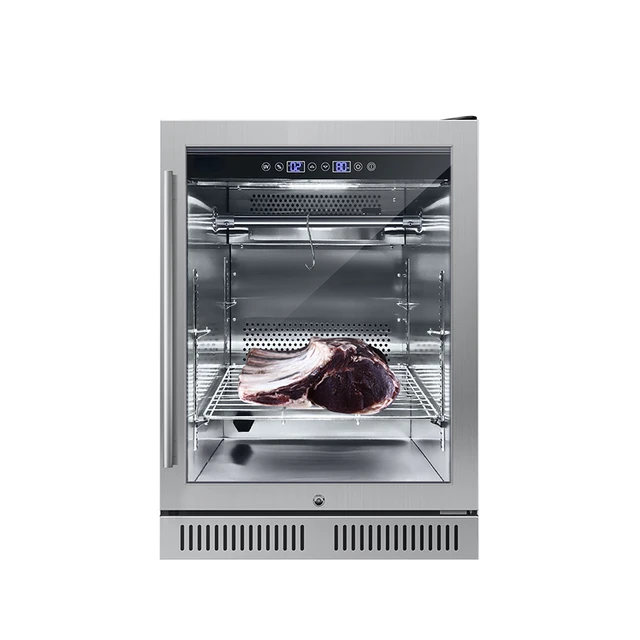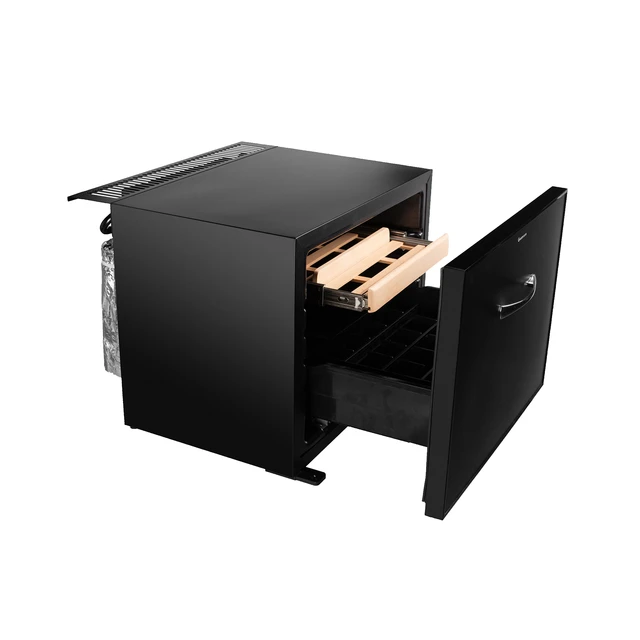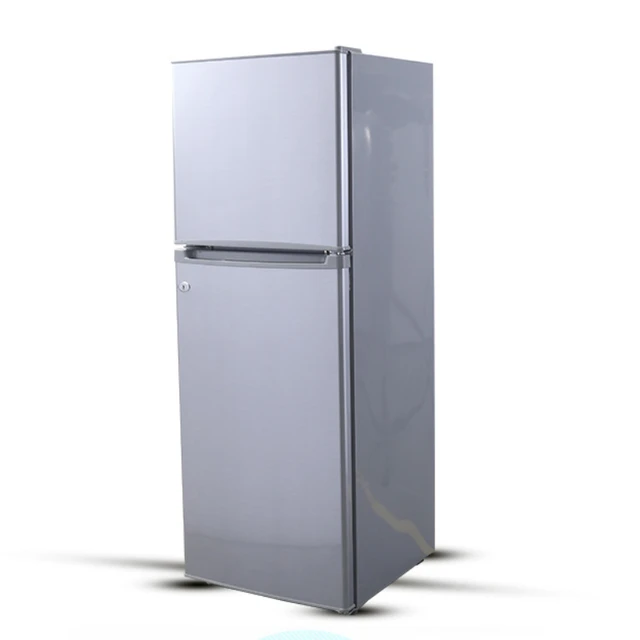Introduction:
Understanding the power consumption of a refrigerator is essential for managing energy usage in your home. A key unit of measurement for power consumption is watts, which indicates the rate at which energy is consumed. While the specific wattage of a refrigerator can vary depending on factors such as size, brand, and features, this article aims to provide an overview of the average wattage of a normal refrigerator and the various factors that can influence it.

How many watts is a normal refrigerator?
Average Power Consumption:
The average wattage of a normal refrigerator typically ranges between 100 and 600 watts.
The exact wattage can vary depending on factors such as the size of the refrigerator, efficiency ratings, and technological advancements.
Refrigerator Size:
The size of a refrigerator can impact its power consumption.
Larger refrigerators often have higher wattage requirements due to the need to cool more space.
Compact or smaller refrigerators tend to have lower wattage requirements.
Energy Efficiency Ratings:
Energy efficiency ratings play a significant role in determining a refrigerator’s power consumption.
Refrigerators with higher energy efficiency ratings tend to consume less power.
Look for appliances with Energy Star certification, as they meet or exceed strict energy efficiency standards.
Cooling Systems:
The type of cooling system employed in a refrigerator can affect its power consumption.
Traditional refrigerators with single-speed compressors tend to consume more power as the compressor runs constantly at full capacity.
Advanced technologies, such as inverter compressors or variable speed compressors, can help optimize energy usage by adjusting the cooling power based on the desired temperature.

Features and Settings:
Additional features and settings in a refrigerator can influence its power consumption.
Features like ice makers, water dispensers, and door-in-door compartments may increase the energy requirements.
Adjusting settings, such as temperature levels and defrost cycles, can impact power consumption as well.
Usage Patterns:
How a refrigerator is used can also affect its power consumption.
Frequent opening and closing of the refrigerator door can cause the compressor to work harder, leading to higher energy usage.
Proper organization and minimizing door openings can help optimize energy consumption.
Ambient Temperature:
The ambient temperature of the environment where the refrigerator is placed can impact its power consumption.
In hotter climates, the refrigerator may need to work harder to maintain the desired temperature, potentially leading to higher power consumption.

Other Factors:
Other factors such as the insulation quality, age of the refrigerator, and maintenance can influence power consumption.
Older refrigerators tend to be less energy-efficient compared to newer models.
Regular maintenance, such as cleaning coils and ensuring proper door seals, helps optimize efficiency.
Calculating Power Consumption:
To determine the actual power consumption of a refrigerator, the wattage should be multiplied by the number of hours the refrigerator operates in a day.
This can be calculated by using a power meter or referring to the manufacturer’s specifications for estimated annual energy consumption.
Importance of Energy Efficiency:
Energy efficiency is crucial when considering the power consumption of a refrigerator.
Refrigerators are typically one of the largest energy-consuming appliances in a household.
Choosing an energy-efficient refrigerator not only helps reduce electricity bills but also contributes to environmental sustainability by conserving energy resources.
Energy-Saving Tips for Refrigerators:
There are several steps you can take to minimize the power consumption of your refrigerator:
Ensure proper ventilation around the refrigerator to allow heat dissipation.
Keep the refrigerator away from direct sunlight or heat sources.
Clean the coils regularly to maintain optimal performance.
Check and maintain proper door seals to prevent air leakage.
Set the temperature to the recommended levels for food safety while avoiding unnecessarily low temperatures.
Avoid overfilling the refrigerator, as it can impede airflow and increase power consumption.
Use energy-efficient settings, such as eco-mode or vacation mode, when appropriate.
Consider defrosting the freezer regularly to maintain efficient operation.
Technological Advancements:
With advancements in technology, refrigerators continue to become more energy-efficient.
Newer models often incorporate features like LED lighting, advanced insulation, and smart sensors to optimize energy usage.
Look for features such as adaptive defrost, which adjusts defrost cycles based on usage patterns, to further enhance energy efficiency.
Cost Savings and Payback Period:
Investing in an energy-efficient refrigerator may initially have a higher upfront cost.
However, the savings achieved through reduced energy consumption can result in long-term cost savings.
Consider the payback period, which is the time it takes for the energy savings to offset the higher initial cost.
Energy Star rated refrigerators can significantly reduce energy consumption and may offer a shorter payback period.
Government Incentives and Rebates:
In some regions, government programs and utility companies offer incentives or rebates for purchasing energy-efficient appliances.
These incentives can help offset the higher cost of an energy-efficient refrigerator, making it a more financially viable option.

Environmental Impact:
Choosing an energy-efficient refrigerator not only benefits your household financially but also has a positive environmental impact.
Reduced power consumption means a smaller carbon footprint, as less energy is generated from non-renewable sources.
By opting for energy-efficient appliances, you contribute to the global efforts to mitigate climate change and preserve natural resources.
Energy-Saving Tips:
Implementing energy-saving practices can help reduce the power consumption of your refrigerator.
Ensure that the refrigerator is placed away from direct sunlight, heat sources, or areas with poor ventilation as this can affect its efficiency.
Keep the refrigerator well-stocked, as items inside can help maintain the desired temperature when the door is opened.
Regularly defrost the freezer to prevent ice buildup, which can decrease cooling efficiency.
Clean the condenser coils regularly to remove dust and debris, as dirty coils can increase energy consumption.
Check and maintain proper door seals to prevent cold air leakage, which can lead to increased power usage.
Energy Efficiency Labels and Information:
When purchasing a new refrigerator, pay attention to the energy efficiency labels and information provided by the manufacturer.
Look for the Energy Star label, which indicates that the refrigerator meets or exceeds energy efficiency standards.
Compare the estimated annual energy consumption stated on the label to make an informed decision.
Cost Considerations:
Understanding the wattage and power consumption of a refrigerator is essential in estimating its impact on your electricity bill.
To calculate the approximate cost of running a refrigerator, multiply the wattage by the number of hours the refrigerator operates in a day, then divide by 1000 to get kilowatt-hours (kWh). Multiply the kWh by your electricity rate to determine the cost.
Energy-efficient refrigerators may have a higher upfront cost but can result in long-term savings through reduced energy consumption.
Environmental Impact:
High power consumption of appliances, including refrigerators, contributes to increased energy demand and environmental impact.
Energy-efficient refrigerators help reduce greenhouse gas emissions as they consume less electricity.
By choosing an energy-efficient refrigerator, you can contribute to environmental sustainability and reduce your carbon footprint.
Maintenance and Longevity:
Proper maintenance of your refrigerator can help prolong its lifespan and optimize energy efficiency.
Follow manufacturer recommendations for cleaning, maintenance, and servicing to ensure optimal performance.
Regularly inspect and replace worn-out seals and components to prevent energy wastage.

Conclusion:
The average wattage of a normal refrigerator ranges between 100 and 600 watts, although it can vary depending on factors such as size, energy efficiency ratings, cooling systems, features, usage patterns, ambient temperature, and other considerations. Understanding these factors can help you make informed decisions about energy consumption and manage your household’s power usage effectively. Remember to choose refrigerators with higher energy efficiency ratings, consider the size and features that meet your needs, and practice energy-conscious habits to optimize power consumption. By considering these factors and calculating power consumption based on your specific usage patterns, you can make informed decisions about the energy consumption of your refrigerator.

